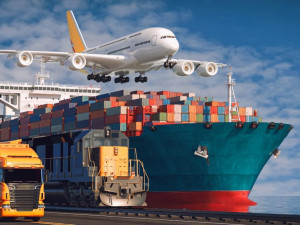
How do exchange rates affect international trade?
The simple answer is they don’t. In the current environment foreign exchange hedging has become more commonplace among trading businesses as well as suppliers and importers of raw materials. It is almost inconceivable that a business of virtually any size won’t be concerned about exchange rates when it performs a basic risk review of its operations.
Governments try to protect their businesses from adverse currency movements, but it is a delicate operation since exporters need a weak currency to make their product attractive from a price perspective, while importers of raw materials want a strong currency to reduce the cost of their imports. Business exchange rates were, until a decade ago, provided by banks who tied their clients into packages of products including trade finance, lending and FX claiming to save them money.
As the products offered became more complicated, businesses demonstrated a lack of understanding and sued banks when the hedges they created didn’t afford protection or simply lost money.
Regulation, together with the arrival of fintech firms, has had a twofold effect on the market. First, exchange rate trading and the offering of hedging products have become more widespread and the cost to the customer has fallen. Second, banks have largely withdrawn into providing wholesale liquidity and servicing a more “select” client base.

How do exchange rates influence international trade?
The influence of FX rates on international trade cannot be over-emphasized. Whether that is wholesale trade between nations or individual deals between importers and exporters, trade is an essential part of the global economy.
On a macro level, President Trump has followed previous presidents in threatening nations they accuse of currency manipulation to allow them to gain market share for their exporters. Countries, like the U.S., with a strong currency “suck in” imports causing damage to their industrial base and trade balance.
Certain countries, for example Canada, Australia, and New Zealand, whose currencies are known collectively as the “commodity currencies”, since they export huge amounts of raw materials, are particularly susceptible to trade flows and vice versa. China is a major importer of raw materials from Australia and their economic data releases have a direct influence over the Australian dollar since the level of Chinese economic activity determines its level of imports.

It is impossible for a Small to Medium Enterprise (SME) business to survive while trading in international markets without adopting a robust policy for dealing with currency risk. That procedure that must involve hedging 100% of FX risk to protect margins.
Larger corporates can adopt policies to take on more risk but must also employ a team who are fully conversant with the operation of and risks involved in FX markets. It is vital that business margins are protected in every area and hedging FX risk has become a vital link in that chain.

About Alan Hill
Alan has been involved in the FX market for more than 25 years and brings a wealth of experience to his content. His knowledge has been gained while trading through some of the most volatile periods of recent history. His commentary relies on an understanding of past events and how they will affect future market performance.”



